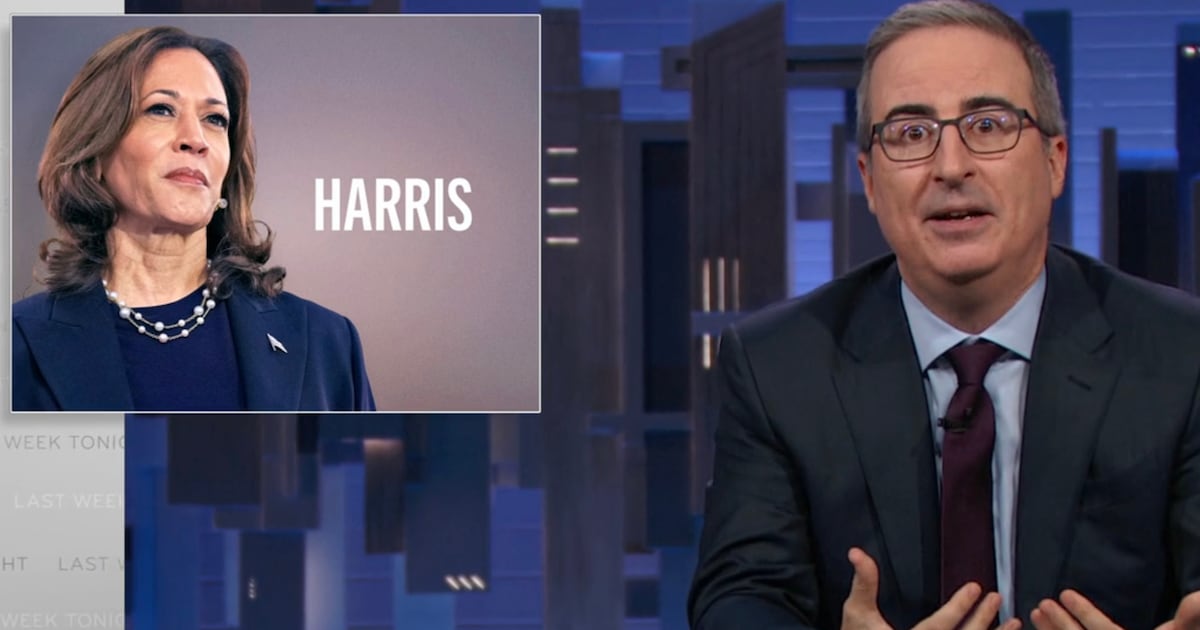Summary
In an emotional monologue, John Oliver urged undecided and reluctant voters to support Kamala Harris, emphasizing her policies on Medicare, reproductive rights, and poverty reduction.
Addressing frustrations over the Biden administration’s Gaza policy, he acknowledged the struggle for many voters yet cited voices like Georgia State Rep. Ruwa Romman, who supports Harris despite reservations.
Oliver warned of the lasting consequences of a second Trump term, including potential Supreme Court shifts.
Oliver said voting for Harris would mean the world could laugh at this past week’s photo of an orange, gaping-mouthed Trump in a fluorescent vest and allow Americans to carry on with life without worrying about what he might do next.



Imperfection should not make the undecided voters give up on democracy, how can we have progressive policy when the people who want it don’t vote?
Exactly.
We cannot afford to fall victim to the Nirvana fallacy.
We must work within the system to change the system or we risk being excluded entirely.
Nirvana fallacy, also know as “perfect solution fallacy” is suggesting that no solution is better than an imperfect solution. If I can’t have nirvana, I don’t want anything.
I see it all the time in online arguments. “Oh, you advocate for housing the homeless? Well then why do you have empty rooms in your house? Just fill it with homeless people.” this is an example of the fallacy. It suggests that my solution, “house the homeless” should be discarded because it is not a perfect solution, which would be filling my house up with strangers. The goal is to make me say, “oh, I’m not willing to do that, so we should do nothing instead.”
I don’t think that’s an example. People housing others in their own homes isn’t an example of the perfect solution to homelessness. I don’t know if we have a name for that fallacy but it’s kind of a “put your money where your mouth is” fallacy. If you aren’t willing to give up a lot for the solution, you must not really believe it is a problem/solution.
People being against the ACA because it isn’t single payer health care is an example of the perfect solution fallacy. Or people being against a $15 minimum wage because it really should be $25 now.
it does have some qualities of Nirvana fallacy in that it implies my support for a policy is inadequate unless I provide a perfect, personal solution. but thanks for your response.